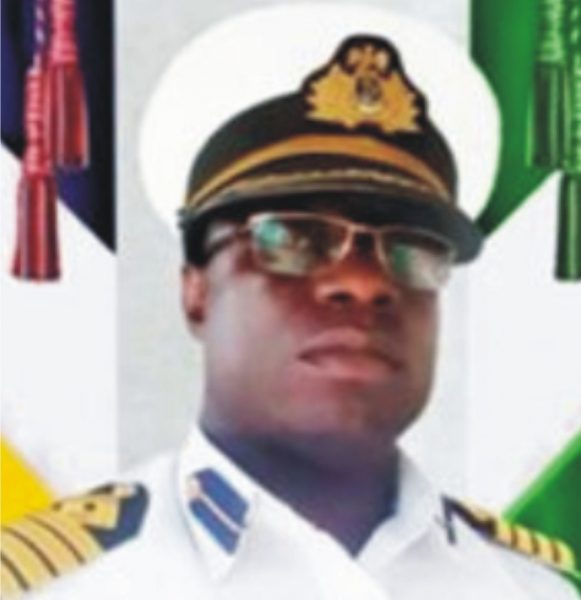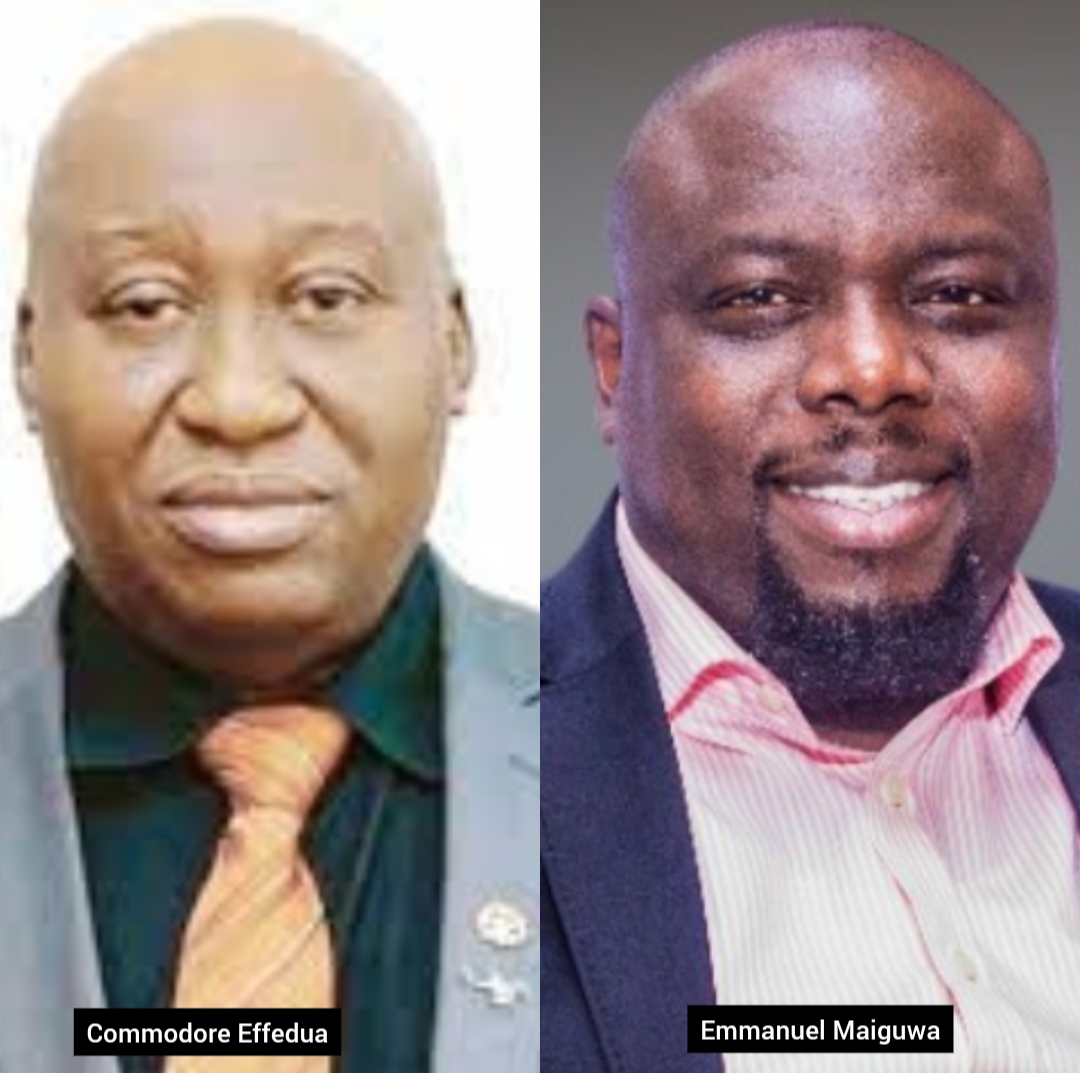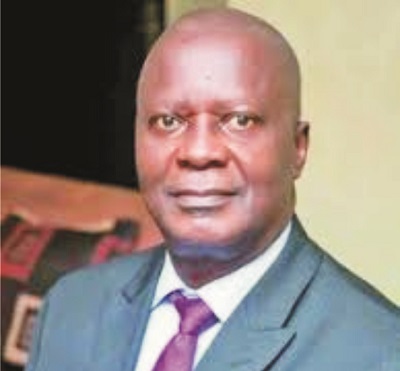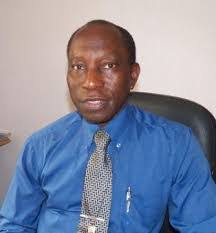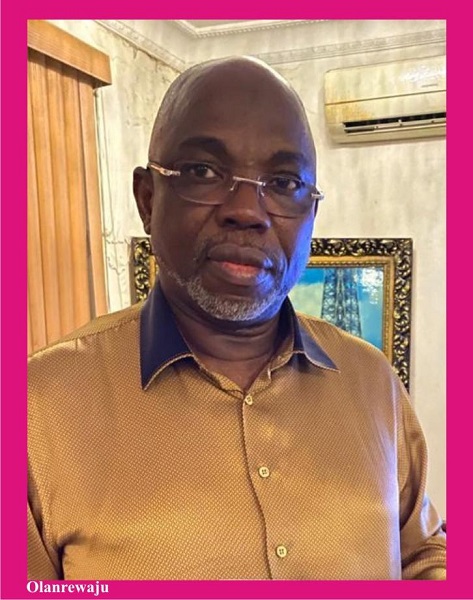Why Nigeria Was Removed From IMO White List- Capt. Oniye
Captain Alfred Oniye easily pass as an encyclopedia of Maritime. .A soft –spoken, certified Maritime Safety and Security expert
Oniye is so vast and highly articulated. He has traversed the maritime domain, locally and internationally. .A thorough professional who has put in many years of profitable service to the maritime industry.. MMS Plus caught up with Captain Oniye at the Anchor Nigeria Capacity building program on Thursday last week. In this chat with him,he advanced many reasons why Nigeria was removed from the IMO white list. Find out why Nigerian Seafarers and by extension why many graduates may be unemployable. He spoke with Frank Odinukaeze and Chioma Akabuogu. Excerpts:
Nigeria is not on the white list of IMO, why is it so? And what is the implication?
Our curriculum is outdated. The competent hands are not allowed to pilot the affairs of the maritime industry. We have people who are very competent but those piloting the affairs, are not competent enough, and even those representing us outside. Imagine when you go to IMO meeting and they are asking professional questions and you don’t know how to answer, how do you want to be on IMO list? We dropped out the last time because we couldn’t meet up with the standards expected. How do you want to say you have standards when plenty of insecurity has taken over the industry. On the IMO list, you are telling them that you have all it takes to be on the list. Before you can say you are good in this industry, one; you must be academically qualified, you must be professionally qualified and operationally qualified. Most of them have academic and professional qualification, but 98% of them are not operationally qualified. This job is practical. I’m very much active in the field. I’m a seasoned professional. And each time you go to the field you see a strange attitude, and I want to believe that the policy makers, when taking a critical decision concerning the industry, are supposed to engage those who are still very much active, who are professionals to listen to their professional views before they come up with any policy but they don’t carry the people along. Do you scrape people’s head behind them?. Imagine the last time that NIMASA came to say that over 70% of the seafarers who sat for COC failed.. Over 70% of your students failed, as an instructor that means you are not competent enough. You didn’t teach them well. I am a certified Maritime trainer from the United States of America, when your students don’t know; it means you didn’t teach that student well because your student is your duplicate. He is to represent you. So if over 70% failed, that means they are not well trained. You didn’t train them well. So you should check the level and standards of your instructor or examiners. I ask one question: the same question you set for a student you claimed failed, can you set the same question for the examiner? And I bet you if they set the question for the examiners, they will fail. I’m very emphatic about it. They will fail because most of them don’t even know what they are asking. They go on net to copy questions and answers. Set the same question for them, they will fail. You that have academic qualification, who does not have operational qualification, you are conducting operational exams for somebody who has operational experience. How do you place that?
So, I must tell you, most of these instructors are even not competent. When you train and your student can not come out and defend what you have taught them, then you did not teach anything. This is why we push out 100 graduates and 90% of them can not fit into the labour market.
Now we are driving a system in African to carve out a curriculum that would drive the reality of Africa. It is not just in Maritime we have this incompetence, it’s general. It is because the curriculum we run in our universities is still early 80’s curriculum. Even those who gave us the curriculum no longer use it again. That is why Nigerians will leave and go to stay at abroad and think they will come back here and sit as a boss for those who are here. And I keep saying that even studying aboard, doesn’t make you an expert if you are to be realistic. We need a curriculum that will capture the reality of Africa. Have you seen a student of Harvard University or best university of the world that have changed any situation in Nigeria or has done better? Has he been able to change any situation in Nigeria? The curriculum there cannot change situation in this country because we need a curriculum that will capture the system we run in this place. And that is exactly what we are saying. That is why even abroad will not accept your B.Sc. They will say they need to retrain you.
From all that you have enumerated, what is the way out for Nigeria and maritime sector?
The way out is to review our Maritime curriculum and allow the experts, the professionals to handle the professionalism of the sector. We are not saying that we want to take over their jobs, but in decision making and enacting policy, consult the professionals, and consult the seasoned Maritime experts, those who are more professional. Listen to the views of those who have international experience before you come up with a policy, so that you can carry everybody along. How do you run a school where your students spend a whole three years and the only time they see Ship is inside the textbook and you expect those students to come out and become employable? Who will employ them? Do you learn driving in the class? You don’t even learn mechanic in the class. It is just like when a B.Sc. Mechanical Engineer is calling a local mechanical engineer an illiterate and the same graduate of mechanical engineer is taking his car to a local mechanic to service. A mechanical engineer that cannot even service his own car. So, who is now an illiterate between the two of them?
Taking about experience, how do Seafarers gain Sea time experience when the vessel owners are reluctant to take them apparently for not wanting to pay them?
How does this situation affect the learning or training experience in view of all you have just said so far regarding curriculum and professionalism?
The vessel owner expects every Cadet coming out from the Maritime school to have gotten the basic knowledge when it comes to Ship familiarization; but with the quality of Cadets,Nigeria produces I tell you even me as a Ship owner I can’t absorb them as a Cadet on board my Ship because it’s like I’m employing disaster. It is just like starting all over again. These Cadets are not coming on board to learn. They are coming on board to be paid. Should I be paying you for training you? No. assuming they are coming on board to say, “We just want to learn”, shipping companies would be ready to absorb them but they are coming on board to earn and not to learn. I cannot be paying you when I need to train you again. Shipping company expects every Cadet to have gotten some basic knowledge especially when it comes to Ship familiarization. If you spend three years in school, you should have opportunity to go on board. Your school should have taken you on some practical things you are supposed to have known, so when you are coming as a Cadet , you are coming to practicalise what you have been taught. That is what Sea time means, but if we change it to say, Ok, let’s make cadetship out of their training, they are coming on board, not to earn but to learn, shipping companies would be ready to absorb them. Not even minding that they are still going to feed you. You eat my food, I will pay you salary and I’m still going to teach you.
What hope lies for the Seafarers? Is there hope for them?
There is hope .That is why we are lunching the Anchor today: Capacity Building ,to see how we can take these students out of the class and give them the familiarization they need in other to fit into the system. There is hope if those of us that are professional in this job are allowed to transfer this knowledge. We are transferring this knowledge for free, we are not saying give us money because we know that in the next five years, if we don’t train these students to be more competent, we will have problem. That is why foreigners are really taking over but to say the fact, there are still Nigeria graduates that are grounded. There are experts that still need to be given that chance. Not all of them are bad. There are Nigerian Captains that are far better than foreigners but they don’t have a policy that is protecting them under the law. They treat them like slaves. Imagine when you bring Crew on board and you will be owing them two-five months salary and the Agency that is supposed to fight for them is not fighting for them.
Seafarers going by reports dread Nigeria pension scheme. Why is it so?
I don’t know about that. But I know Seafarers job should be a tax free job. But there are countries that pay tax. While with American job, I didn’t pay tax. Seafarers job should be tax free but basically sea faring job is a pensionable job because normally, according to the Nigeria Labour Congress (NLC), the shipping companies will be deducting little from their salary and be paying it to the pension company but most of them , they deduct their money, but they don’t remit that money to the appropriate authority. It’s part of their regulation under NLC. But the mining companies and shipping companies, when they deduct the money they don’t remit. We have complained on this severally but the regulating body, they pretend as if they don’t hear what we are saying. We have a case that we are handling presently that a pension was deducted from Captain for good five years and it was not remitted. So we carried out all our background check, and we took the matter to court. The captain in question, they are owing him five months salary. Imagine you keep a family man on board for five months, you did not pay him, even the one you paid, you deducted and did not remit it. And so, even you want pay a Nigerian peanut, let that peanut be constant. The job is a very beautiful job, if we had a body that is protecting the rights of these Seafarers. Seafarers are going through a lot and Nigeria cannot do without them. If Seafarers in Nigeria drop Anchor today, NIMASA and NPA will cease to exist,even Shippers Council may not exist again. How will it generate money? Customs can’t generate money if Seafarers do not bring all these cargoes you collect duty from, where will Customs generate money? They fail to understand that for any country to survive, it cannot do without the Seafarers, and it cannot survive without the Seafarers. They are called essential workers. Essential workers are people you cannot do without.
Has Sea piracy reduced or still on the ascendancy?
Well on political level, it has reduced, at least by 40% within the Gulf of Guinea and Nigerian waters compared to what we recorded last year. Out of the 35 incidents recorded globally, one hundred and thirty two took place in the Gulf of Guinea and Nigeria happens to be the head. But this year, statistics have dropped significantly like 40%, and I want to believe that the dropping is political, because crimes in Maritime industry is an organized crime Those who are involved technically say let’s hold on a bit so that they can think they are working. You cannot commit crime in this industry without involving those that matters.
You can’t steal in the industry. How do you want to do it? How do you want to steal Crude Oil? How do you want to highjack vessels? If we want to do the right thing, what will it cost us to have radar that would monitor the water? What will it cost to have a Maritime Control centers? What will it cost us to have to a floating base, where we can see everything that happens in waters? You think they don’t have such idea. They know what they are doing.


